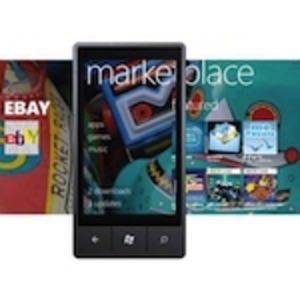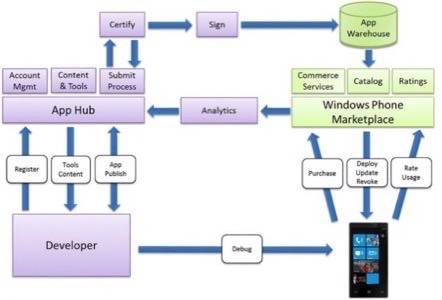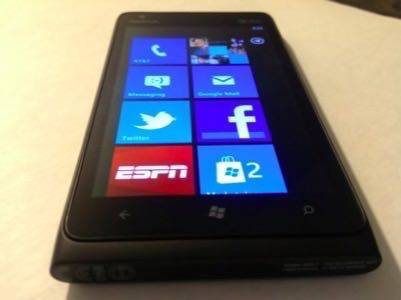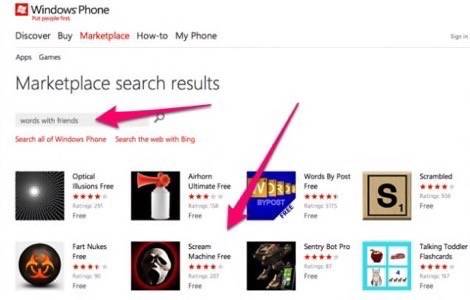The Windows Phone Marketplace is a sad, sorry place. It is a land of copycat games, worn-out titles and a plethora of apps that border on outright spam. Since the end of 2011, it has grown from about 40,000 apps to nearly 70,000, but any subjective analysis of those new apps would show that almost all of them are of poor quality. Top publishers have either abandoned Windows Phone or just do not care. With the upcoming release of the Nokia Lumia 900, can Microsoft turn developer sentiment around?

There are several things that Windows Phone has going for it. The consensus among developers is that Windows Phone is the easiest mobile platform for which to develop. Apps that are given tender loving care actually look and perform great. Too bad those apps are few and far between.
The Benefits of Developing for Windows Phone
You have heard the rumors. Microsoft will “pay” developers to create apps for Windows Phone. To a certain extent, this is true. Sometimes Microsoft gives developers outright cash infusions but more often this “payment” comes in the form of free services that would have cost the developer thousands of dollars. We have heard this from several different development groups over the past year, but none of them will go on the record for fear of Redmond’s wrath. But, if you are a top game or app publisher, it may behoove you to see how Microsoft will “help” you port to Windows Phone.

Image: Windows Phone app development cycle
The .NET architecture and ability to code in C# through Visual Studio mean that even developers that do not know how to create Windows Phone apps can pick it up rapidly. Many developers are familiar with .NET as one of the oldest and most ubiquitous standards on the Web and many developers are familiar with it because it was one of the first frameworks they learned to code on. C# is part of the Common Language Infrastructure and is a simple, general-purpose code. Fundamentally, C# is not all that different from C++ or other languages used by other mobile platforms.
The ease of development and the object-oriented nature of C# makes it possible to create great-looking apps for Windows Phone. On the downside, that ease also makes it easier for developers not concerned with quality to flood the Windows Phone Marketplace with subpar titles. It is a dual-edged sword.
Great examples of well-done apps on Windows Phone are ESPN’s Score Hub, which comes preloaded on the Lumia 900, as well as Spotify’s streaming music app.
The Lumia 900 is the best Windows Phone to hit the ecosystem. It has the marketing power of AT&T, Nokia and Microsoft behind it. The top apps in the Marketplace look spectacular on the Lumia. If there is a turning point where developers start taking Windows Phone seriously, the Lumia 900 may be it.

Sorry State
In November 2011, we wondered if the Windows Phone Marketplace had reached “critical mass.” The consensus at the time was that the 40,000 apps and steady growth in both volume and presumed quality would put Marketplace on near equal footing with Android and iOS within short order.
“So far I am pleased with the application portfolio which I believe has already reached critical mass,” said IDC analyst Al Hilwa at the time.
Five months later, “critical mass” is an illusion. Where are the top apps from the top publishers? Outside of some nice Xbox Live offerings, where are the great games that drive the most engagement?
Words With Friends is not yet on Windows Phone. A nice StumbleUpon app, one of the top downloads on iOS, is absent. So is Pinterest. Mobile browsers Opera and Dolphin are not on Windows Phone. Some of the featured mobile games on the platform are Fruit Ninja, Angry Birds (the original) and Plants vs. Zombies. All of those games were quite popular two years ago and have enough of a long tail to be valuable in the Marketplace. Yet, for every top app that is missing from Windows Phone, there are several copycats lined up to take its place.
For instance, Minecraft is not in Marketplace. If you look around, though, there are several Minecraft rip-offs, like Survivalcraft from Candy Rufus Games. There is an official New York Times app for Windows Phone but also several duplicate readers made by obscure publishers.

When searching in Marketplace, several apps come up in many searches. These apps are indicative of what can be found in Marketplace. Fart Nukes Free seems to have prominent ranking on Windows Phone (it is exactly what it sounds like) and Scream Machine Free/Pro also seems to be gaining traction. It is not that these types of apps do not exist on iOS or Android, they are just fewer and further between as the respective app stores evolve.
Looking Toward Windows 8?
Some forward-looking developers see opportunity in Windows Phone Marketplace. With Windows 8 around the corner, some developers see the chance to be featured on the tablets enticing.
“Being able to launch with Windows 8, on the phone and on tablets sure makes things interesting,” said Adam Telfer, VP of game development for Toronto-based XMG Studios. “We are working on Windows Phone. I was just at GDC and the attitude towards Windows Phone there… is that, No. 1, there are no in-apps [purchases] and, No. 2, there is no user base. So, why are we developing for this platform? We are establishing our brand on there. We have a lot of faith that Microsoft is coming back, especially with the Windows Phone and Windows 8 initiatives. So, we put our games up there, kind of experimenting with the Marketplace.”
The question is whether it will be a device (the Lumia 900) from Nokia or the platform (Windows 8) that drives interest from the top publishers. Companies such as EA Games look not only at the device but the entire ecosystem, with Nokia and Microsoft driving adoption.
The reality is that developer interest is not going to be driven by any single large corporation. Microsoft can subsidize development, Nokia can sell the phone for $99 and AT&T can incentivize developers through featured apps on the Lumia 900. None of these entities will drive mass developer adoption like Android and iOS enjoy. The ultimate barometer will be more democratic: consumers. The amount of people that buy the phone will be the guide for developers. If the Lumia 900 flops, do not expect developers to come flocking to the Windows Phone Marketplace anytime soon.

















